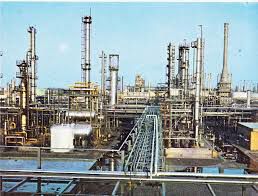1954: THE BRITISH CONSERVATIVE GOVERNMENT AND THE ENDING OF THE NATIONALISATION OF THE ANGLO-IRANIAN OIL COMPANY’S CRISIS.
Back in July 1954, during the talks, the UK government had authorised an offer of £5 million to Iran, ‘to further the conclusion of a satisfactory oil agreement and to promote political stability in Persia.’¹ After signing of the agreement in October 1954, Anthony Eden recommended a loan of £10 million to Iran, and said, ‘now that an oil agreement had been concluded large sterling earnings would accrue to Persia in a few year’s time and it was in our commercial interest to secure a foothold in the Persian market.²Eden also went on to say ‘a tied loan of this kind would assist the recovery of our former share of the Persian market.’³
We should not put our long-term interests in Persia at serious risk in return for some short-term protection of our economy, which, if our estimate of Persia’s probable expenditure of sterling is correct, may prove quite unjustified,4
was the view of the Foreign Office back in 1952.
‘Persia would again become an important market as soon as there was a settlement of the oil dispute,’5 had been the view of the Board of Trade in 1952.
On welcoming the agreement in the House of Commons Eden said, ‘although the title (of ownership of Abadan refineries and installation) is transferred, the actual use of the refineries is the same under the new arrangement as before.’6 In December 1954 the Anglo-Iranian Oil Company changed its name to the British Petroleum Company Ltd.
The aim of this article was to explain how the Conservative Government dealt with the nationalisation of the Anglo-Iranian Oil Company by the Iranian Government, and brought the crisis to an end. The Anglo-Iranian Oil Company was the most important British enterprise overseas, and the major British interest in the Persian Gulf.
At first, as has been shown, conciliation and diplomacy were the preferred options by the United States Government for a solution to the Anglo-Iranian Oil Company’s crisis. Both, the Truman and Eisenhower administrations were concerned about the communist threat in Iran, where the Western world had vested economic and political interests. The Truman administration was convinced that an economic collapse in Iran or any British military attack would provoke a Soviet intervention. Musaddiq’s uncompromising stand, the unstable political situation in Iran, which this article showed, the support that the Iranian Prime Minister, by the summer of 1953, was receiving from the Iranian Communist Party (the Tudeh party) and the fear of a challenge from the Soviet Union, made the US change its policy from one of diplomacy to confrontation. The United States came round to the view that Musaddiq was too destabilising in a strategically important part of the world. Access by the West to the rich Iranian oil reserves, and a communist challenge in Iran, was the United States main concern.
The new Republican administration of Eisenhower had little sympathy for nationalism in parts of the world where the West had vested economic and political interests. It was considerably more worried about the communist threat. The American Government came to recognise a basic identity of interest with the British on the issue, to maintain the flow of oil from that part of the world. Additionally, on both sides of the Atlantic now the conservatives were in power, the Korean War was winding down, therefore more Western manpower was available. Also, as Churchill and Eisenhower were war-time comrades, their relationship was warm. The United States’ policy shifted towards the British position. In a covert operation in the summer of 1953, by the CIA and MI6, Musaddiq’s government was toppled, which this chapter demonstrated. It was replaced by the government of General Zahedi, which was seen as amenable to compromise and negotiation. An oil embargo upon Iranian oil, solidarity from the major oil companies and the covert operation, eventually brought a settlement to the crisis.
Things which Britain’s world role largely rested on were the huge and already established investment, trade, culture, way of life, and the prestige of the empire. Political power and influence were her world role. These were British interests. Last but not least, there were military and defence interests. It was all related to one very important (if not all-important) factor; this was the economic factor.
- PRO, London, CAB 128/27 pt 2 CC (54) 56th Conclusions, Minute 7, p. 6.
- Ibid.
- PRO, London, CAB 128/27 pt 2 CC (54) 55th Conclusions, Minute 6, p. 8.
- PRO, London, T 236/3664, Treasury Records, Cabinet, Persia (Official) Committee, Control of Persia’s use of sterling with all countries outside the sterling area. Note by the joint Secretaries, Confidential, 20th May 1952.
- PRO, London, T 236/3664, Treasury Records, Cabinet, Persia (Official) Committee, Exports to Persia. Note by the Board of Trade, Secret, 21st July 1952.
- Parliamentary Debates, Commons, in ENAYAT, op. cit., p. 185.



